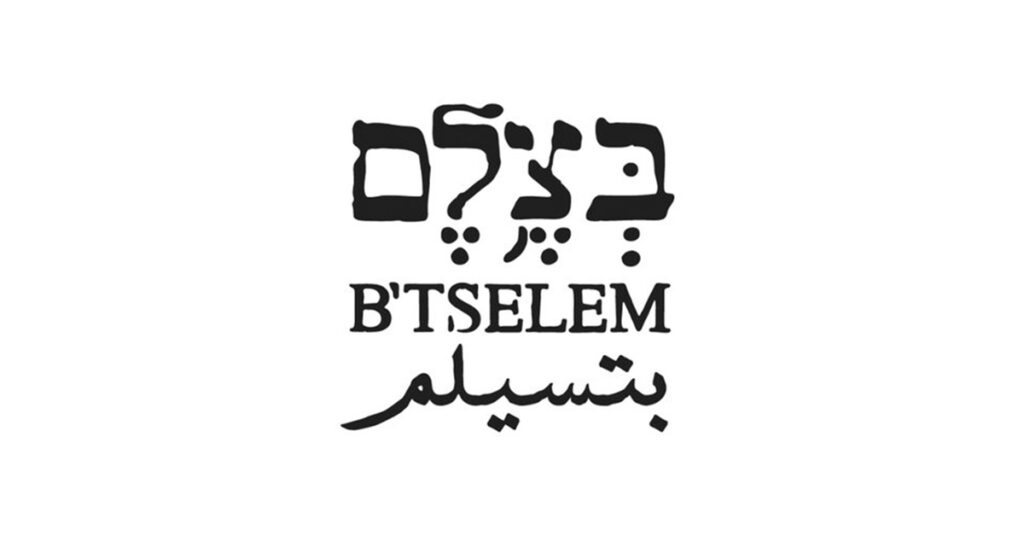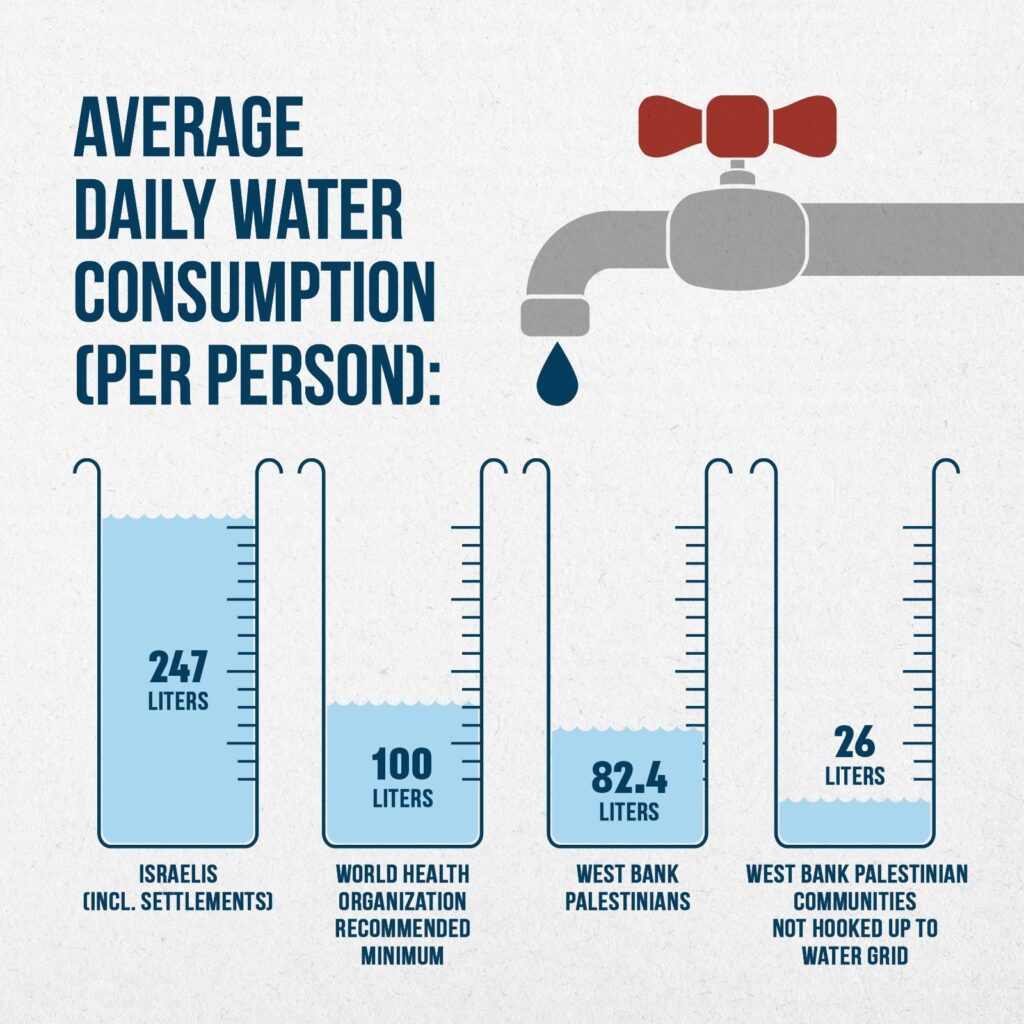New B’Tselem report: “Parched”
New B’Tselem report shows Israel intentionally depriving West Bank Palestinians of water

Israelis, including those living in West Bank settlements, consume a daily average of 247 liters of water per person – three times the quantity consumed by Palestinians in the West Bank, which amounts to a daily 82.4 liters per person. Only 36% of the latter are supplied with running water every day, and about 100,000 Palestinians in 70 communities throughout the West Bank are not even hooked up to the water grid. Their consumption is similar to the average in disaster zones – a mere 26 liters a day per person (the World Health Organization recommends a minimal amount of 100 liters a day per person). In total, Israelis consume 10 times the amount of water consumed by Palestinians in the West Bank, although the Israeli population is only three times larger.
These figures show that Palestinians in the West Bank are living with a severe water crisis. B’Tselem’s latest report clarifies that the shortage cannot be attributed to fate, a natural disaster or a regional water crisis. It is the outcome of Israel’s discriminatory policy to intentionally create a constant, artificial shortage among this population.
Israel justifies its policy by citing the arrangements laid out in the Interim Agreement signed with the PLO in 1995. The agreement cemented Israel’s monopoly over water sources and the discriminatory distribution of the water sources it shares with the Palestinians, and enshrined the principle followed before it was signed: Israelis have access to water on demand, while Palestinians receive water according to predetermined allocations.
Contrary to Israel’s claims, the agreement cannot be considered relevant today: since it was signed, the Palestinian population has grown by about 75% and the quantities stipulated at the time are far from meeting current needs. Moreover, the agreement did not foresee Israel’s transformation into a water superpower – running desalination projects, recycling wastewater and more – that no longer depends on natural sources. Given this new reality, it would have been reasonable to expect that Israel allow the Palestinians in the West Bank to pump much larger quantities than those stipulated in the agreement. Yet Israel refuses to do so.
Immediately after occupying the West Bank in 1967, Israel took over all the water sources between the Jordan River and the Mediterranean Sea. Since then, it has acted as though it has exclusive rights to all these sources, and sole decision-making power over how to use them. In developing its water network, Israel has treated its own territory and the West Bank as a single geographic unit. However, in the West Bank, only the settlements receive water based on consumption indicators inside Israel.
The Israeli apartheid regime works to promote and perpetuate Jewish supremacy in the entire area it controls from the Jordan River to the Mediterranean Sea, deliberately creating a huge disparity in water consumption between those who enjoy the luxuries afforded by a first-world water superpower and those – all of them Palestinian subjects – who suffer a chronic water shortage. This cruel, systematic exploitation of a basic resource towards political ends is especially damaging to the most vulnerable Palestinians communities, who live in the hottest, most arid areas of the West Bank, as part of a policy aimed at dispossessing them of what little property and land they have.

